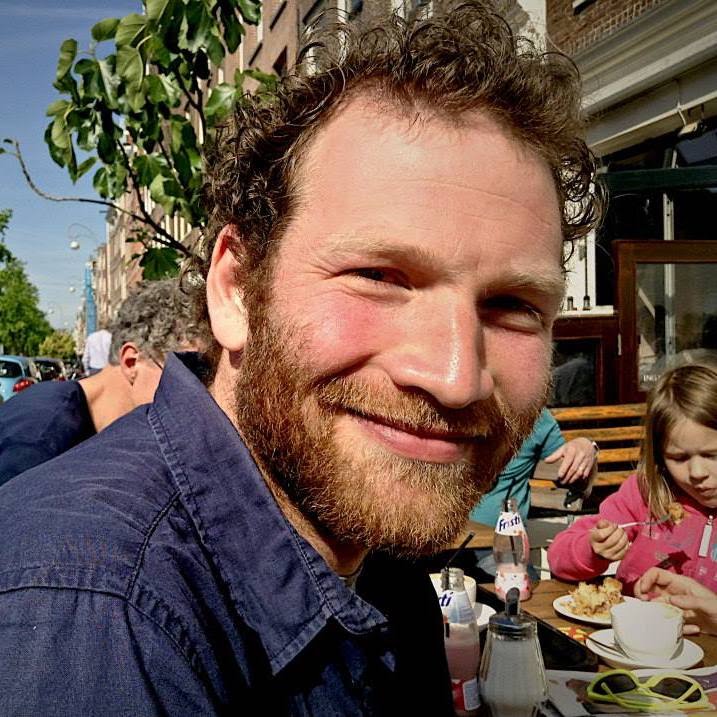
Inquisitive semantics and pragmatics: Fall 2011
• Amsterdam • Master of Logic, University of Amsterdam
The course provides an in-depth introduction in inquisitive semantics, logic, and pragmatics, and engages students in current research questions. Inquisitive semantics offers a new logical-semantical model for the interpretation of natural language. The proposition expressed by a sentence is viewed as a proposal to update the common ground of a conversation. Crucially, a speaker may propose several alternative ways of updating the common ground, from which the hearer is invited to choose. The new semantic framework gives rise to new directions for the study of pragmatics, and also leads to new logical research questions.
In the first part of the course we discuss the logical and philosophical foundations of inquisitive semantics, and will illustrate its applications in several empirical linguistic domains. The last part of the course is intended to have the nature of a research colloquium. Students will choose a small research project on logical, philosophical or linguistic aspects of inquisitive semantics, write a small research report, and present their findings to the other students.


Potential additional topics
- Unconditionals: Rawlins, Kaufmann.
- Hypothetical information exchange: supposition, modal subordination, conditional questions, counterfactuals.
- Inquisitiveness cross-linguistically: Haspelmath-01, Bhatt-00
- Questions and indefinites in dynamic semantics: Haida.
- Intervention effects: Beck, Kim, Pesetsky, Haida, Cable.
- Question-based models of discourse: Ginzburg, Roberts, Büring.
- Acquisition of disjunctive questions in Japanese and Mandarin: Akagi.
- Exhausitivity marking in Hungarian: Balogh-09, ch.4,5
- Further reading on attentive might: Willer-11, Yalcin-11
Assignments and grading
- Mid-term paper
Length: 5-10 pages
Due: Nov 1
Weight: 30% - Presentation
Length: depending on total number of presentations
Topic: either your own paper-in-progress, or related work
Date: Dec 7 or Dec 14
Weight: 20% - Final paper
Length: 10-20 pages
Due: Dec 20
Weight: 50%
Schedule
| Date | Topic | Reading | Optional reading |
|---|---|---|---|
| Week 1 (7/9) | General course introduction (slides) Basic intro to inquisitive semantics (slides) |
Groenendijk-Roelofsen-10-notes Aloni-Butler-Dekker-07 |
Groenendijk-99 Mascarenhas-09-first-part Groenendijk-Stokhof-99 |
| Week 2 (14/9) | Inquisitive semantics (restricted, support-based) |
Groenendijk-Roelofsen-09 (sec.1-3) | Groenendijk-09 |
| Week 3 (21/9) | Inquisitive algebra and logic | Roelofsen-11 Ciardelli-Roelofsen-09-tark |
Ciardelli-Roelofsen-10-jpl |
| Week 4 (28/9) | First order inquisitive semantics: the maximality problem and witnesses |
Ciardelli-09 Groenendijk-Roelofsen-11 |
|
| Week 5 (5/10) | Witness semantics An algebraic perspective |
Groenendijk-Roelofsen-11-note Roelofsen-11-note |
Roelofsen-11-lori |
| Week 6 (12/10) | Witness semantics | Groenendijk-Roelofsen-11-prague | |
| Week 7 (19/10) | The logic of interrogation from the perspective of inquisitive semantics | Groenendijk-11 | Groenendijk-99 |
| Break (midterm paper due Nov 1) | |||
| Week 8 (2/11) | Attentive content (slides) | Ciardelli-Groenendijk-Roelofsen-10 | Zimmermann-00 |
| Week 11 (9/11) | Three ways of thinking about possibilities | ||
| Week 10 (16/11) | Disjunctive questions, prosody and syntax | Pruitt-Roelofsen-11 | Roelofsen and van Gool-09 |
| Week 9 (23/11) | Disjunctive questions, semantics Erotetic languages |
Pruitt-Roelofsen-11 Groenendijk-11-hierarchy |
|
| Week 12 (30/11) | Erotetic languages and the inquisitive hierarchy Inquisitive dynamic epistemic logic |
Groenendijk-11-hierarchy Roelofsen-11-idel |
|
| Week 13 (7/12) | Polarity particles |
Farkas-Roelofsen-11 | Farkas-Bruce-10 |
| Week 14 (14/12) | Project presentations | David van Tijn Holger Brunn Matt Teichman Pawel Lojko |